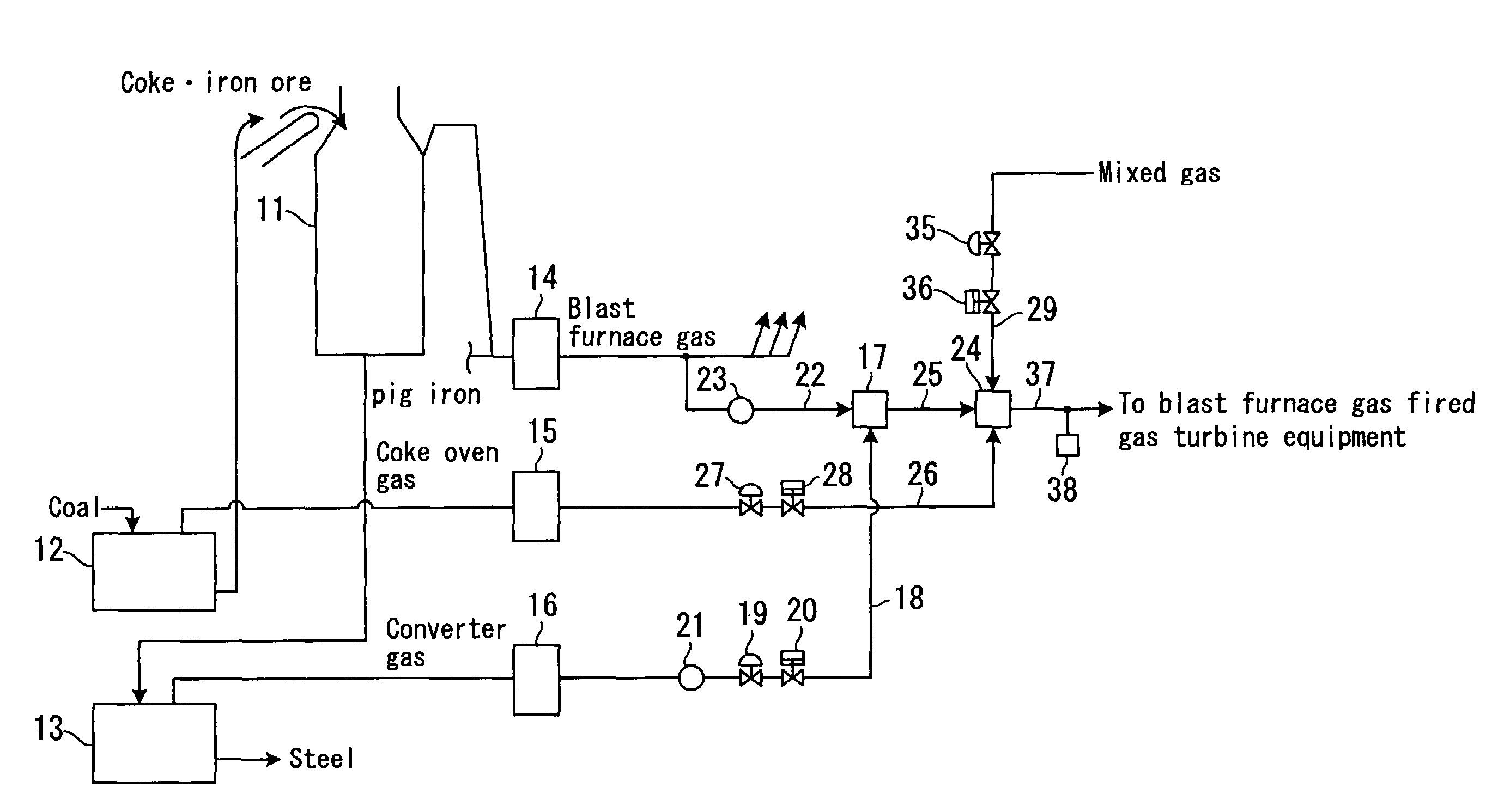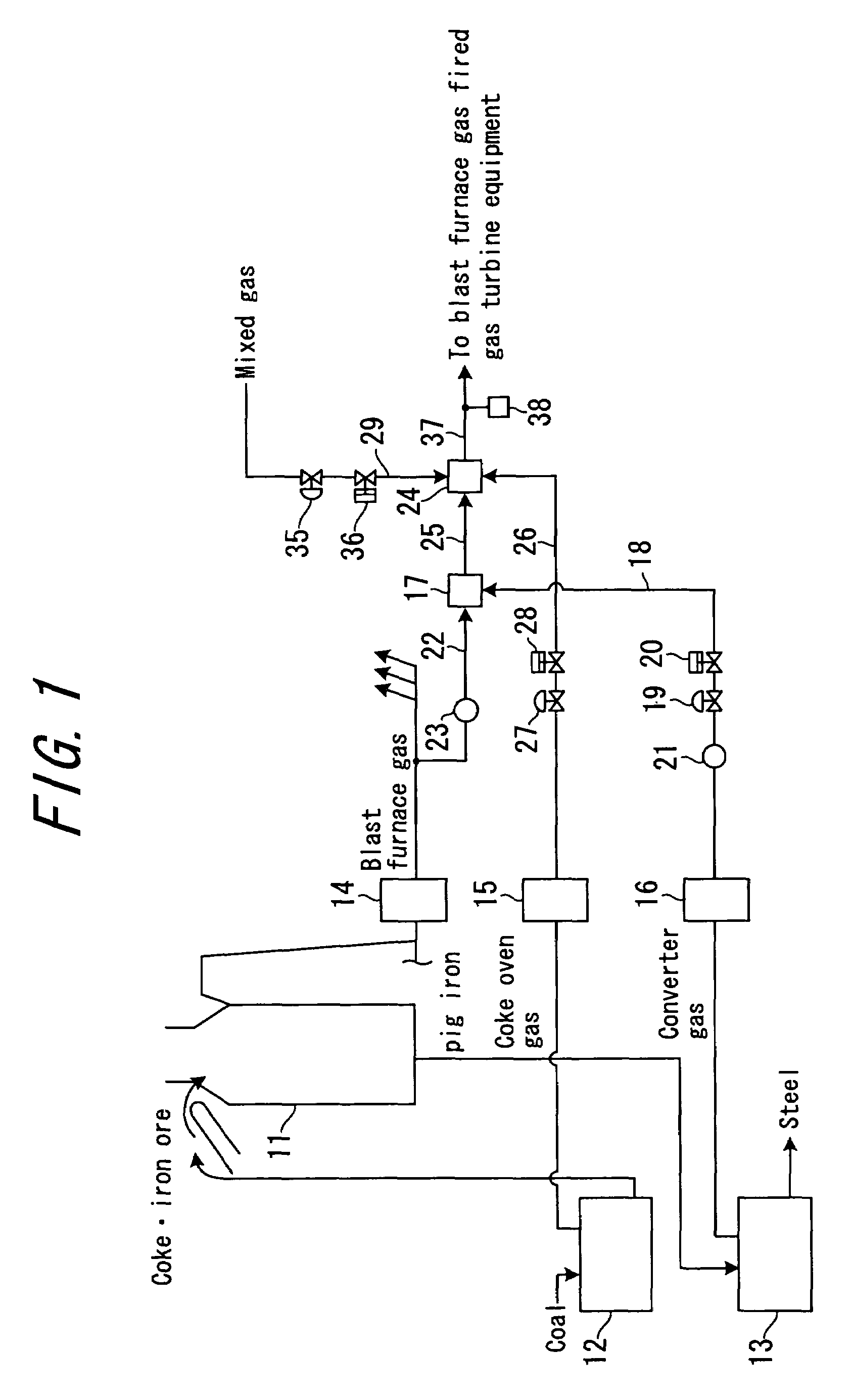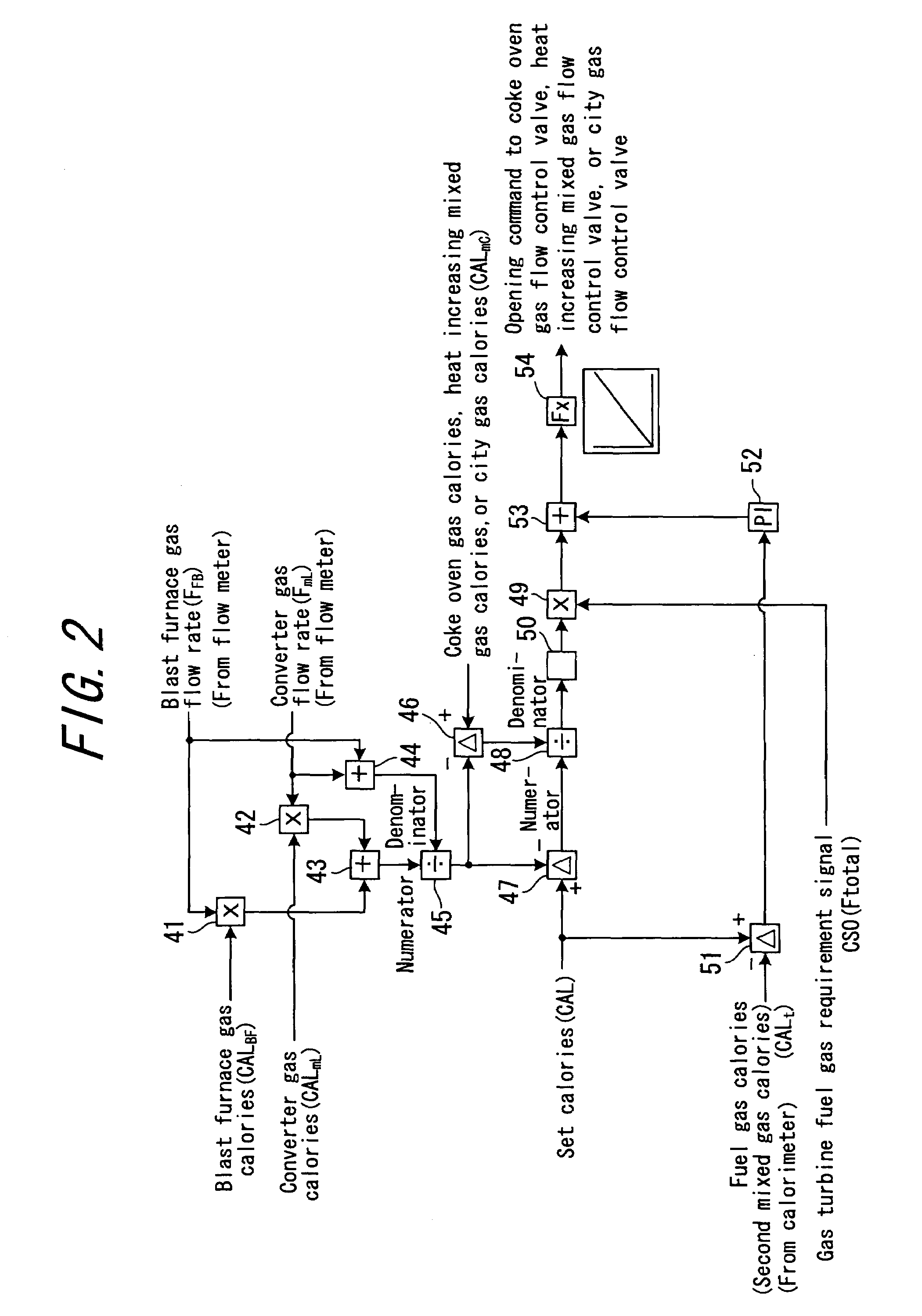Fuel gas calorie control method and device
a fuel gas and calorie control technology, applied in the direction of gas modification by gas mixing, gas engine fuels, blast furnaces, etc., can solve the problems of inability to follow the short-term (rapid) calorie change of the fuel gas (mixed gas) associated with the change in the flow rate, and achieve the effect of controlling the calories of the fuel gas (second mixed gas) more accurately
- Summary
- Abstract
- Description
- Claims
- Application Information
AI Technical Summary
Benefits of technology
Problems solved by technology
Method used
Image
Examples
embodiment 1
[0085]FIG. 1 is a configurational drawing of a fuel gas production system provided in an iron mill. FIG. 2 is a block diagram showing the circuit configuration of a fuel gas calorie control device according to Embodiment 1 of the present invention applied to the fuel gas production system. FIG. 3 is a graph showing the relationship between a gas turbine consumed fuel gas flow rate and a gas turbine fuel gas requirement signal. FIG. 4 is a graph showing an example of the mixing ratio among a blast furnace gas, a converter gas, and a coke oven gas for producing a fuel gas.
[0086]As shown in FIG. 1, an iron mill is equipped with a blast furnace (smelting furnace) 11, a coke oven 12, and a converter 13. The coke oven 12 is a furnace for producing coke from coal, and a coke oven gas (COGas) is generated in the coke oven 12 during this production. The coke oven gas contains flammable components, such as H2 (55%), CO (7%) and CH4 (20%), N2 and CO2, and its calories are, for example, 4,500 k...
embodiment 2
[0110]FIG. 5 is a configurational drawing of a fuel gas production system provided in an iron mill. FIG. 6 is a block diagram showing the circuit configuration of a fuel gas calorie control device according to Embodiment 2 of the present invention applied to the fuel gas production system. In FIGS. 5 and 6, the same parts as those in FIGS. 1 and 2 are assigned the same numerals as those in FIGS. 1 and 2.
[0111]As shown in FIG. 5, in a fuel gas production system according to the present Embodiment 2, a blast furnace gas calorimeter 61 as a blast furnace gas calorie measuring means for measuring the calories of a blast furnace gas is provided in a blast furnace gas supply piping line 22, a converter gas calorimeter 62 as a first heat increasing gas calorie measuring means for measuring the calories of a converter gas (first heat increasing gas) is provided in a converter gas supply piping line 18, and a coke oven gas calorimeter 63 as a second heat increasing gas calorie measuring mean...
PUM
| Property | Measurement | Unit |
|---|---|---|
| gas flow rate | aaaaa | aaaaa |
| flow rate | aaaaa | aaaaa |
| flow rate ratio | aaaaa | aaaaa |
Abstract
Description
Claims
Application Information
 Login to View More
Login to View More - R&D
- Intellectual Property
- Life Sciences
- Materials
- Tech Scout
- Unparalleled Data Quality
- Higher Quality Content
- 60% Fewer Hallucinations
Browse by: Latest US Patents, China's latest patents, Technical Efficacy Thesaurus, Application Domain, Technology Topic, Popular Technical Reports.
© 2025 PatSnap. All rights reserved.Legal|Privacy policy|Modern Slavery Act Transparency Statement|Sitemap|About US| Contact US: help@patsnap.com



